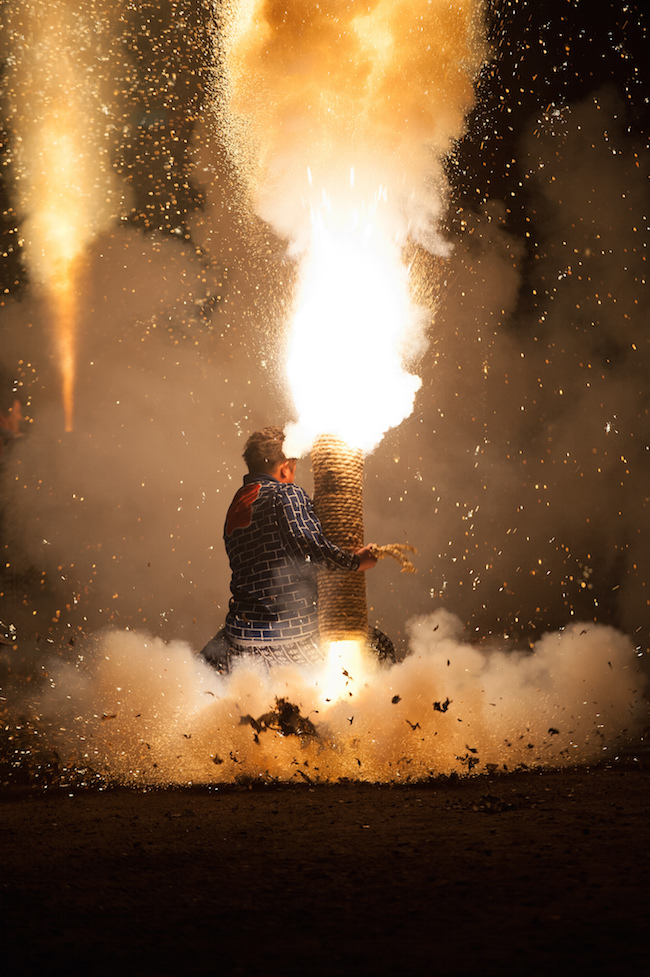Aug 29, 2018
Toyohashi Fire Festival: Things are about to go off!
While there are many, many fireworks festivals in Japan throughout the summer months, there are very few that match Toyohashi’s Hono-no-Saiten for sheer spectacle. And danger.
About Hono-no-Saiten
The Hono-no-Saiten festival started in 1996 to commemorate the 90th anniversary of the founding of Toyohashi City and has been an annual event ever since. It’s not difficult to see why.
While much of the festival throughout the day is similar to other festivals – with yatai stalls selling food, kids running around with toy guns and elderly men drinking more sake than they can probably handle, it is when the night falls that things start to brighten up, quite literally.
The Mikawa area, and Toyohashi, in particular, is well known for its ‘tezutsu hanabi,’ hand-held, handmade fireworks, which are exactly as dangerous as that sounds.
Crafted from 80cm bamboo tubes stuffed with three kilograms of old-fashioned gunpowder, the tezutsu hanabi are thought to have originated as a tool for battlefield and inter-castle communication some 450 years ago. They are rarely seen outside of the Mikaya Bay area, however, at Hono-no-Saiten they are put to use for our entertainment.
Here you will see troupes of locals, 25 at a time, dressed in traditional clothing including unique thickly woven fireproof cotton quilted jackets, clutching these battleground tools under their arms. Once set, and the taiko drums reach their crescendo, they brace themselves as the gunpowder goes off, sending a fountain of sparks and smoke ten meters into the air, as the burning embers rain down on the brave (or perhaps foolhardy) holders below.
The conclusion of the event is signified by a more modern fireworks display, one that may be more visually spectacular, but lacking the inherent danger and cultural importance, it doesn’t quite compete with the sheer visceral thrill of the tetzusu hanabi.
For the kids
As well as the regular festival stalls at which your children can catch fish and win toys, there are also handicraft workshops will teach kids to make small tezutsu (minus the gunpowder, of course).
Hono-no-Saiten Details
- Where: Imahashi-cho, Toyohashi-City (map)
- When: September 8, 2018
- Website: www.honokuni.or.jp
Mark Guthrie
Photo: by Kuraken (CC BY-SA 2.0) via flickr.com
Photo: by Koji Ishii (CC BY-SA 2.0) via flickr.com




About the author